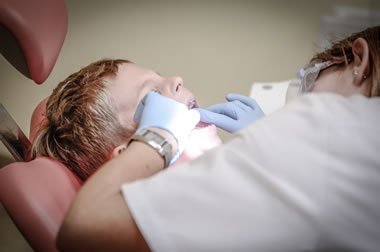CQC Compliance for Dentists – Legionella Risk Assessment
 In this paper we briefly examine some of the issues associated with regulatory and Care Quality Commission (CQC) compliance for dentists and dental practices, looking in particular at the need to carry out a legionella risk assessment to control the dangers from Legionnaires’ disease that may come from water systems including dental waterlines and specialist equipment.
In this paper we briefly examine some of the issues associated with regulatory and Care Quality Commission (CQC) compliance for dentists and dental practices, looking in particular at the need to carry out a legionella risk assessment to control the dangers from Legionnaires’ disease that may come from water systems including dental waterlines and specialist equipment.
Controlling legionella in dental practices
All healthcare premises have a duty of care to manage the risks associated with the quality and safety of the water used within their facilities. This is to protect the health and safety of patients, staff and others who may use or visit the premises. The water supply must conform to current guidelines if it is to be safe from the risk of legionella, other bacteria and organisms that may contaminate and potentially multiply in the water systems.
This applies to dental practices just as much as GP surgeries, hospitals and other healthcare settings. Dental waterlines can be particularly risky in this respect, as the temperatures used in dental settings can be higher than those seen elsewhere. This applies to ambient temperatures, since legionella bacteria will more readily multiply when temperatures are between 20 – 45 degrees Celsius.
Mandatory legionella risk assessments for dentists
To comply with the requirements of the CQC, the Department of Health’s HTM 05-01 (Decontamination in primary care dental practices) and UK health and safety law all dental surgeries must perform a comprehensive legionella risk assessment to identify potential hazards relating to exposure to legionella bacteria from their water systems.
This assessment will help identify areas of risk, but will also lead on to the development of a structured management approach that will help to control legionella growth in the water systems on-site. Additionally, the nature of each individual dental surgery will help guide the competent person, the person responsible for the management and control of legionella, to find the best approach to risk management in this instance.
Daily disinfection of dental waterlines
The daily disinfection of dental waterlines is a must for all dental surgeries. A suitable disinfectant such as chlorine dioxide must be used to help manage and limit the build-up of bacteria and biofilm in the waterlines. Whilst it is impossible to be completely rid of legionella and other bacteria, it can and should be reduced as far as possible to within safe limits.
Running water through the lines is another essential part of keeping the dental systems safe for use. This should be done at the beginning of each day, as well as for a lesser time between patients.
Using the right water in dental equipment
Tap water is not recommended for dental lines because of its potential to introduce low levels of bacteria in to water systems and equipment used within the facility. Instead, freshly-distilled water from a sealed bottle that has not previously been opened should be used. The alternative is to use reverse-osmosis water. A fresh supply should be used daily, as well.
The legionella risk assessment and systems in use will determine what water testing is required
While mains water systems should be tested regularly for bacteria build-up, dental waterlines are considered to be independent systems and therefore will have different requirements. Regular monitoring is not usually required, unless there is evidence to suggest this would be necessary.
In addition to the availability of a current legionella risk assessment the CQC would look for practices to demonstrate a good understanding of the nature of dental waterlines, good management practices and the appointment of a suitably competent person to manage the risks from exposure to legionella bacteria – and the risk from other bacterial sources. This is of paramount importance in maintaining a healthy and safe water system to protect patients, staff and others.
World-leading water safety risk management specialists
Our healthcare experts serve NHS, dentists, other healthcare and specialist facilities managament clients across all regions of the United Kingdom, Europe and internationally, delivering professional water safety and legionella risk assessment solutions, water testing, independent compliance auditing, City & Guilds training and other environmental risk management services.
If you have questions about any of the issues raised above or you would like to speak with one of our legionella specialists about CQC compliance issues call us today on 0330 223 36 86 or get in touch here … contact us


